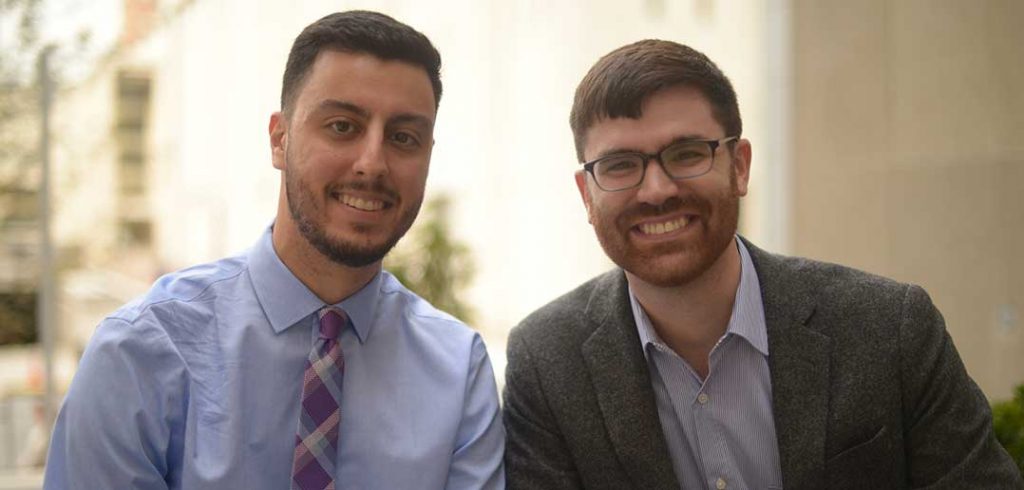Alex Corbitt, 26, FCRH ‘12, GSE ‘13, and John Maldonado, 25, FCRH ’13, a doctoral student, were named to the ILA’s second annual “30 Under 30” list, an honor bestowed to teachers, authors, volunteers, researchers, social entrepreneurs, and leaders from 12 countries.
Maldonado, a Rego Park, Queens native who graduated with a double major in psychology and English, became a NYC teaching fellow and taught special education at P368K Star Academy in Brooklyn. He is working towards a doctorate in contemporary learning and interdisciplinary research while teaching English at his alma mater, Archbishop Molloy High School in Queens.
He said being named to the list is a validation of what he called the “ugly hours” that all teachers put in—time when they put in extra hours at home, trying to figure out how to best convey information to their students and how to attend to their additional needs.
“As educators, we don’t often get the credit we deserve,” said Maldonado, who is interested in equity and culture, and the roles they play in education. He noted that, beyond his teaching he worked to increase his students’ technological literacy, “in order to give them more career and life opportunities.”
“To be recognized for that work is really validating,” he said. “I’m lucky to be the recipient. But a lot of teachers are doing the same thing.”
Corbitt, a New Jersey native who earned a bachelor’s from Fordham College at Rose Hill in 2012 and a master’s in English education from the GSE, has likewise been teaching in New York City public schools.
He did his student teaching at MS 331, The Bronx School of Young Leaders, in Morris Heights, and stayed on after graduation to teach seventh-grade English. The school serves a low income population. Corbitt believes that high needs schools are where committed teachers are needed most.
He said the learning curve for teachers was steep, but he grew quickly to rise to the challenges. What helped, he said, was the school’s strong culture of shared learning—teachers frequently duck into each others’ classrooms to observe and assist each other.
“My initial few lessons were just not resonating with the kids, said Corbitt, who acknowledged the struggle to self-analyze one’s teaching, rather than place blame on students. “ Once I pushed myself to make things more relevant and more project-based, more interactive and collaborative, I saw a switch.”
“I saw I could get better, and that has contributed to my personal growth,” he said.
That struggle is more gratifying when acknowledged by an award like the ILA 30 under 30, he said.
“It gives me hope that we’re not just shouting out to schools and teachers who get high test scores, but also to teachers who are trying to authentically recognize their students, give their students a voice, and empower them,” he said.

